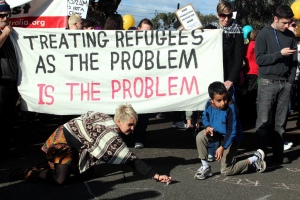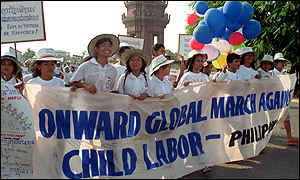ALEXANDER SOLZHENITSYN: TO THE VERY ESSENCE OF EVERYTHING
By René Wadlow

I want to push through
To the very essence of everything:
Straight to the core of days gone by,
To what made them,
To the foundations, to the roots,
The heart of the matter.
Boris Pasternak
In Alexander Solzhenitsyn’s most autobiographical novel The First Circle, a diplomat says “A great writer is, so to speak, a second government. That is why no regime anywhere has ever loved its great writers, only its minor ones.” The writer as the conscience of the people has a long tradition in Russia both in Czarist and Soviet times. Turgenev was compelled to live much of his life abroad, and many of his works were suppressed. Chekhov felt this duty of public conscience so strongly that, even though suffering from tuberculosis, he insisted on making a long journey to the Sakhalin Islands to report on the conditions of exiles there. Leo Tolstoy was regularly censored and finally excommunicated by the Russian Orthodox Church which banned any prayers at his funeral.

In 1974, Solzhenitsyn was expelled from the Soviet Union and found shelter in the house of German writer Heinrich Böll in Cologne, (then West) Germany. (C) Dutch National Archives
Alexander Solzhenitsyn’s father Isai was a follower of Tolstoy. As David Burg and George Feifer point out “Tolstoyism was a kind of nonchurch religion propounding that the kingdom of God resides within each human soul, and that the way to a true knowledge of Christ and to salvation was through individual conscience and love rather than the strictures of an organized church. Tolstoy preached moral betterment by means of restricting human appetites and simplifying life; his ultimate goal was to transform the whole of Russia, including the intelligentsia into a community of peasants satisfying their own basic needs through manual work on their own land. Tolstoyism was one of the country’s most popular ideological movements at the turn of the century and reached its crest with Tolstoy’s death in 1910.” (1)
Alexander Solzhenitsyn whose birth anniversary we note on June 18 never knew his father who died of a hunting accident six months before his birth. However, Solzhenitsyn’s mother shared her husband’s Tolstoyian views and passed on the values to her son. She never remarried so as to be able to care for her son. Although Leo Tolstoy is not mentioned by name, his ideas are strongly evident in Solzhenitsyn’s Letter to Soviet Leaders of September 1973, his last effort to speak truth to power before being deported from the Soviet Union in February 1974. The letter was published in Paris in Russian and then in English from London in 1974. (2) Solzhenitsyn calls upon the Soviet leaders “So let us come to our senses in time, let us change our course!” Recalling Tolstoy indirectly he wrote “They hounded the men who said that it was perfectly feasible for a colossus like Russia, with all its spiritual particularities and folk traditions, to find its own particular path.”
Much of the letter is devoted to warning against unrestrained industrial growth. “Economic growth is not only unnecessary but ruinous. We must set ourselves the aim not of increasing national resources, but merely of conserving them. We must renounce, as a matter of urgency, the gigantic scale of modern technology in industry, agriculture and urban development (the cities of today are cancerous tumors). The chief aim of technology will now be to eradicate the lamentable results of previous technologies.” He went on to stress “We need to heal our wounds, cure our national body and national spirit. Let us find the strength, sense and courage to put our own house in order before we busy ourselves with the cares of the whole planet. And once, again, by a happy coincidence, the whole world can only gain by it…The village, for centuries the mainstay of Russia, has become its chief weakness. For too many decades we have sapped the collectivized village of all its strength, driven it to utter despair.”

Solzehnitsyn addressing the media as he left his longtime home in Cavendish, Vermont in 1994, finally returning home to his native Russia.
It was Solzhenitsyn’s novels and his documentation of the lives of people in the Soviet prison system which brought him to world attention and the Nobel Prize for Literature in 1970. His first short novel One Day in the Life of Ivan Denisovich was published in the Soviet Union, but his other novels and the monumental Gulag Archipelago were published from Western Europe. It was his own years spent in prison camps and forced exile in Central Asia which focused his sense of mission and his drive to awaken the Russian people to the inhumanity which the Soviet regime had wrought.
As Leopold Labedz wrote “like other major novelists, Solzhenitsyn makes his own experience the center of his literary work and the point of departure for its symbolic significance. The concentration camp and the cancer ward are for him places in which to reflect not just on the problems presented by extreme situations, but on the wider questions of Soviet reality and of our epoch, of good and evil, in short of la condition humaine. Like other great novelists he is uncompromising in his attitude to truth and he restores to Russian literature the moral universalism which had been lost during the Stalin era. His writing is philosophical in the traditional sense; with its complexity and sense of tragedy; it is the antithesis of the shallow optimism and vulgar sociologism which under the sign of ‘socialist realism’ has for so many years dominated Soviet prose writing.” (3)
Solzhenitsyn spent 18 years in forced exile in rural Cavendish, Vermont. When he returned to post-Soviet Russia in 1994, he often wrote and spoke in a tone considered pessimistic, deploring crime, corruption and a decline of spiritual values. Some saw these remarks as nationalistic. They are better seen in the spirit of Leo Tolstoy, highly critical of the current situation but calling for reforms through a strong inner light and a confidence in the strength of the rural population.
Notes
David Burg and George Feifer, Solzhenitsyn (London: Hodder and Stoughton, 1972, 371pp.)
Alexander Solzhenitsyn, Letter to Soviet Leaders (London: Index on Censorship, 1974, 59pp.)
Leopold Labedz (Ed.)., Solzhenitsyn: A Documentary Record (Harmondsworth: Penguin Books, 1972, 264pp.)
**************************************
Prof. René Wadlow is President of the Association of World Citizens.














